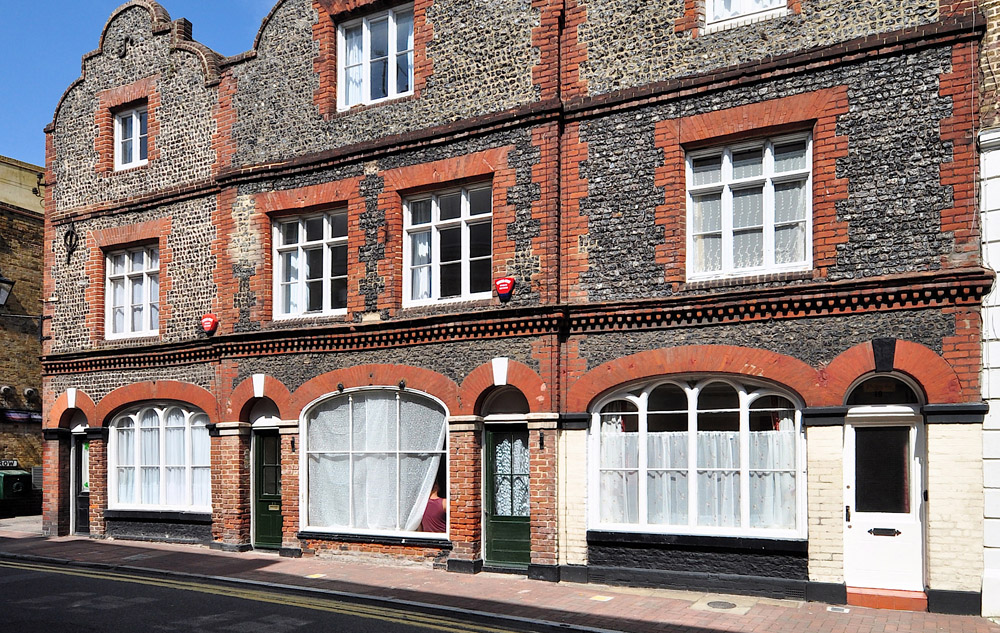A new government report suggests converting more commercial properties into homes may help alleviate the UK housing crisis.
The idea of converting commercial properties into housing has been investigated by the All-Party Parliamentary Groups for Housing Market and Delivery and for Ending Homelessness. Their joint inquiry into the topic has looked into whether property conversion may be a viable option.

© Ron Ellis / Shutterstock
The latest data from the UK charity Shelter reveals 271,000 people are homeless in England – the highest figure of the four home nations. The largest number of homeless individuals are in London.
In Wales, there are 11,700 known homeless people, who have been assessed by local authorities as needing urgent accommodation. There are likely to be more who haven’t come to the attention of the authorities, due to “sofa surfing” or lodging unofficially with friends and family.
A BBC report revealed the number of homeless in Scotland had hit an all-time high at the end of 2022, with 28,944 individuals officially categorised as homeless – the worst figure since records began in 2002.
In Northern Ireland, around 8,500 people, including almost 3,500 children, are homeless and have been placed in temporary accommodation.
Commercial property conversions are traditionally seen as a potential rental property type for private landlords, and now they may become more common as a result of the report by the two groups of MPs and Peers.
Changing commercial to residential
Landlords may wonder how difficult it is when it comes to changing property from commercial to residential use. It might well become a lot easier in the future if the government backs the findings of the inquiry.
The types of properties involved in the initiative could include retail units, office space, local authority buildings and potentially any type of commercial building in the private or public sector.
MPs studied evidence from local government departments, housing and homelessness organisations, planning experts and developers before reaching their conclusion. The all-party inquiry found there’s “significant potential” to increase housing supply in this way, providing safeguards are put in place to ensure the homes created are genuinely affordable and of a suitable quality.
They have been told there’s an opportunity to create around 20,000 more homes from empty local authority buildings alone. In addition, 14% of retail space and 7% of office space in England is currently vacant and could be put to good use.
In Wales, 17% of retail space is vacant, while the figure stands at 15% in Scotland and 19% in Northern Ireland.
Can you live in a commercial property?
Buildings registered as commercial properties in the UK usually need planning permission from the local council before a commercial to residential conversion can take place.
All local authorities will have their own planning department that is responsible for granting or refusing planning permission. There are application fees to be considered, which can vary across local regions.
If you have a property that needs full planning permission for change of use, it can cost around £400 to £500, or possibly more.
Every council’s planning department will operate in a slightly different manner, so do your research in advance if you have your eye on a commercial property. If you’re looking to change the use of office to residential, or retail to residential, start discussions with the council early in the process. This way, you will understand the full picture before you make a decision.
You will need to have a firm business plan before going ahead. Take into account whether you wish to convert a commercial property into HMO accommodation, or possibly into student housing in an area where there’s a university.
Weigh up the costs not only of the physical conversion, but also of gaining the change of use planning permission and furnishing the property.
Further government action
In considering the future potential of a commercial property change of use to residential, the all-party inquiry concluded there were three areas that would require further government action. The aim is to safeguard tenants from possibly unsuitable developments.
First, the group called for legal standards to be strengthened. Members recommended that the government should implement Healthy Homes Principles to ensure consistently high-quality homes were created.
Secondly, any such conversions must contribute towards genuinely affordable housing that helps meet local needs and tackles homelessness problems.
Finally, the inquiry called for clear guidance for local authorities to enable them to have more influence over the types of conversions in their area, ensuring they’re in line with local housing and economic development initiatives.
The APPG for Ending Homelessness has stated conversions are most effective when they are collaborative efforts involving housing associations, local authorities and socially minded organisations.
How many commercial to residential conversions are there?
Since 2015, more than 50,000 new residential buildings have been converted from previously commercial use in the UK.
Since the Covid-19 pandemic, more commercial buildings, including offices and retail premises, are either empty altogether or under used, according to a report in Landlord Zone – leaving them potentially open to conversions.
Property investors with development experience are the main group so far who have seen opportunities for investment in this market. Among the premises that have been converted to date are closed down pubs, department stores, high street shops, town centre offices, suburban offices and former bank buildings.
Feelings are mixed among commercial bodies representing the retail sector. Some fear the conversion from commercial to residential properties will lead to the further loss of town centre business areas.
However, others favour the scheme and believe it could breathe new life into struggling town centres by increasing the number of consumers using the surviving shops, restaurants, pubs and other leisure facilities. Also, they feel people would rather see a smart apartment block over an empty boarded-up shop.
